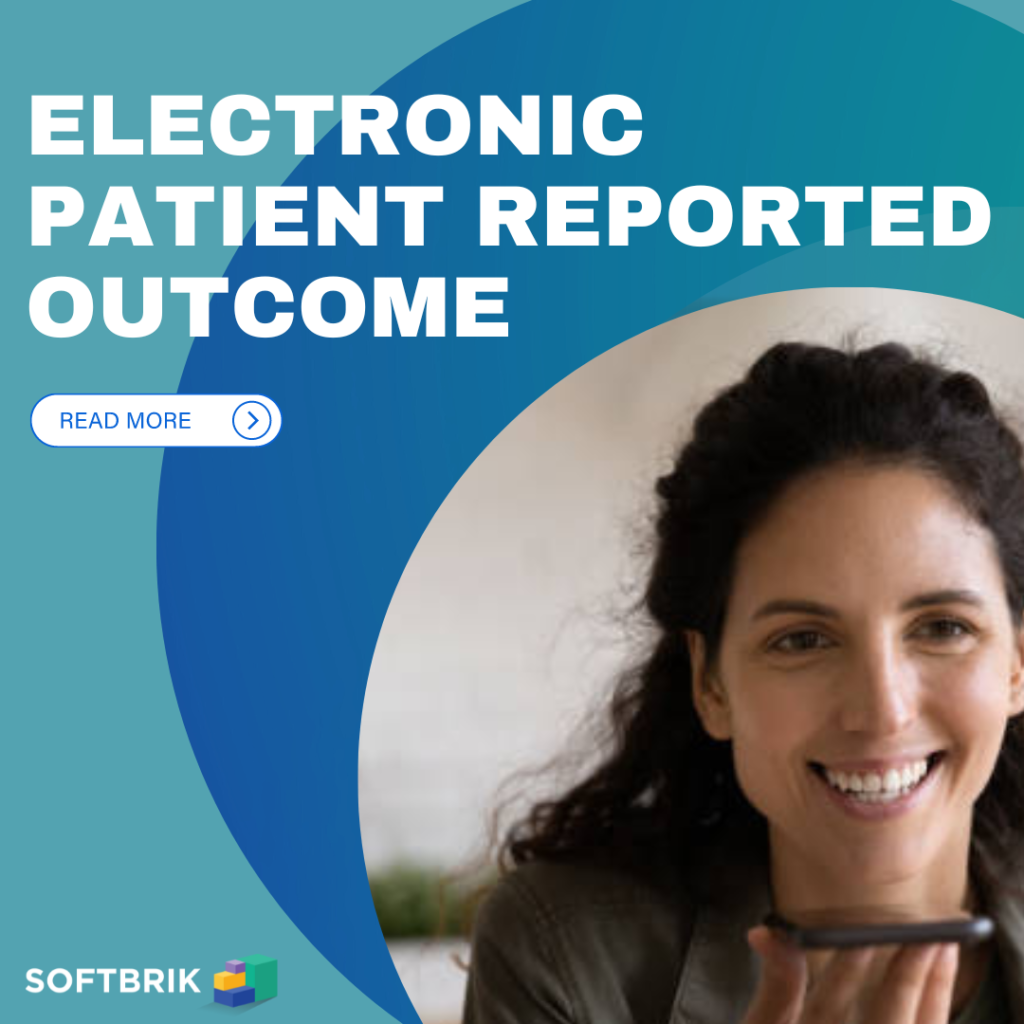
What is Electronic Patient Reported Outcome or EPROs
Electronic Patient Reported Outcomes (ePROs) collect patient-reported data through electronic means, such as a computer, tablet, or smartphone. These data can include symptoms, quality of life, and treatment satisfaction. ePROs are commonly used in clinical research and healthcare to understand better a patient’s experience with a condition or treatment.
Types of Electronic Patient Reported Outcomes or EPROs
There are several different types of ePROs, each with its specific uses. These include:
- Symptom checklists: These ePROs are used to assess the presence and severity of symptoms related to a specific condition or treatment.
- Quality of life instruments: These ePROs measure a patient’s overall well-being and satisfaction with their life.
- Treatment satisfaction surveys: These ePROs measure a patient’s satisfaction with their current treatment, including any side effects they may be experiencing.
- Patient-generated data: This type of ePRO allows patients to self-report their health status, symptoms, and treatment through a variety of means, including patient portals, wearables, and apps.
Advantages of using Electronic Patient Reported Outcome or EPRO
ePROs have several advantages over traditional methods of collecting patient-reported data. These include:
- Increased efficiency: ePROs can be completed quickly and easily, with patients able to complete them from the comfort of their own homes.
- Greater accuracy: ePROs can be designed to minimize errors and ensure that data is collected consistently.
- Greater patient engagement: Patients can use ePROs to actively participate in their own care actively, leading to greater satisfaction and better outcomes.
- Increased data volume: Electronic data collection allows for larger sample sizes and more frequent data collection, which can result in more detailed and accurate findings.
- Cost-effective: ePROs are typically less expensive than traditional in-person interviews.
Effective Real World Scenarios of EPROs
In clinical trials, ePROs can collect data on the effectiveness of new treatments and medications. This can include information on symptoms, quality of life, and treatment satisfaction. This information can be used to determine the safety and efficacy of new treatments and identify any potential side effects.
In chronic disease management, ePROs can monitor patients with chronic conditions, such as diabetes or cancer. It can help healthcare providers to assess the effectiveness of treatment and identify any potential issues. For example, a patient with diabetes may use an ePRO to track their blood sugar levels, which can then be used to adjust their treatment plan.
In patient-centered care, ePROs can be used to involve patients in their own care and treatment decisions. This can lead to better outcomes and increased satisfaction, as patients can take an active role in their care. ePROs can also monitor patients remotely, which can be especially helpful for those unable to come to the clinic.
In remote monitoring, ePROs can monitor patients, especially those unable to come to the clinic. This can include patients who live in remote areas, are bedridden, or cannot travel due to a medical condition. ePROs can collect data on symptoms, quality of life, and treatment satisfaction, which can then be used to adjust treatment plans or identify potential issues.
Challenges of Electronic Patient Reported Outcomes or EPROs
Despite the many advantages of ePROs, some challenges need to be considered. These include:
- Technical difficulties: ePROs require a reliable internet connection and may be difficult for some patients to complete due to a lack of access or technical skills.
- Data security: ePROs store sensitive patient information and require secure data storage and transfer to protect patient privacy.
- Data interpretation: ePROs require careful interpretation of the collected data, as the results may be affected by a patient’s circumstances or biases.
- Implementation: The implementation of ePROs can be complex, especially for healthcare providers who may need to become more familiar with the technology.
Softbrik and Electronic Patient Reported Outcome
Electronic Patient Reported Outcomes (ePROs) are a vital tool in the healthcare ecosystem, providing valuable information on treatments’ effectiveness and helping patients be more engaged in their care. They offer a cost-effective, efficient, and accurate way of collecting data.
Softbrik allows patients to share their health information and experiences directly with their healthcare providers through various channels, including voice message-based customer support. This approach to EPRO not only increases patient engagement and provides healthcare providers with valuable insights into their patients’ health status and treatment progress.
Voice message-based customer support of Softbrik can be integrated into the EPRO process by allowing patients to share their experiences and concerns through voice messages. These voice messages can be easily recorded and transmitted to healthcare providers, providing a more personal and direct form of communication. This can help patients feel more connected to their healthcare provider and increase their engagement in their care.
By integrating voice message-based customer support into EPRO, Softbrik helps healthcare providers better understand their patients’ experiences and make more informed decisions about their care. This can lead to improved patient outcomes, increased satisfaction, and higher quality of care.
Frequently Asked Questions
What is an example of a patient-reported outcome?
A patient-reported outcome (PRO) is any information about a patient’s health status that comes directly from the patient rather than from a clinician or medical record. An example of a PRO could be a patient’s self-reported level of pain or a patient’s self-reported quality of life.
What does ePRO stand for in clinical trials?
In clinical trials, ePRO stands for “electronic patient reported outcome.” This refers to collecting PRO data through electronic means, such as a tablet or smartphone app, rather than paper-based questionnaires. ePROs are used in clinical trials to collect data on the effectiveness of new treatments and medications and to assess the safety and efficacy of these treatments.
